
Certified Business Energy Professional (BEP®) Training Program | February 2024
- Registration Closed
Course Information
| February 26-March 1, 2024 |
| 3.2 CEU |
Pricing
Ends at 11:59 PM EST 8 business days prior to training start.
Non-Member | $1,995
AEE Member | $1,750
Late Registration
Begins 12:00 AM EST 7 business days prior to training start.
Non-Member | $2,095
AEE Member | $1,850
Registration closes 12:00 AM EST 3 business days prior to training start or if course reaches capacity.
Course Description
The Certified Business Energy Professional Training Program is designed to provide attendees a deep-dive into the financial aspects of energy efficiency and energy management practices. Over five days, our professional instructors will guide you through the principles and practices of the highest relevance and practical value when looking at the “bottom line,” either for your company or your customers.
Who Should Attend
This training program is of greatest value to non-technical business-oriented professionals that manage energy engineers or oversee energy efficiency projects or technically-oriented professionals that need a better understanding of justifying projects and the business side of energy management. Obtaining AEE’s BEP® certification provides international credibility among energy management, sustainable and clean energy communities. Attendees of this program have included existing energy professionals, executives, financial executives, facilities managers, energy consultants, energy engineers, and energy managers.
Schedule
Daily Breaks Days 1 - 4 : AM Break (15 min) | Lunch Break (1 hr) | PM Break (15 min)
Please see the "My Learning Schedule" tab for schedule information.
*Remote exams are scheduled on an individual basis. See Certification Program tab for additional instructions.
Workbook
Your workbook will be shipped to the address you provide during registration, and will arrive up to 14 days before the class start date.
To review or update your delivery address before registering, please visit your Profile. (Please note that workbooks cannot be delivered to P.O. boxes.)
If you have already registered for this training and need to update your address, send an email to training@aeecenter.org with your revised address details.
Section 1: Developing an Energy Audit Strategy and Plan
- Awareness of:
- Understand the goal of Energy Audits
- The major steps in the Energy Audit process
- The different audit levels
- Ability to:
- Plan for a successful audit
- Communicate the results of the Energy Audit effectively to the client
Section 2: Energy Use Analysis
- Awareness of:
- Energy forms and energy unit's conversion
- Energy rate structure and benchmarking
- Ability to:
- Analyze energy consumption for a facility
- Establish an energy balance for a facility
- Establish a consumption baseline and adjusting the baseline
Section 3: Data Collection and Analysis
- Awareness of:
- The importance of data in energy auditing process
- The different techniques to measure and analyze data
- Ability to:
- Define the necessary information to collect before and during the field visit
- Analyze the collected data to turn data into information
- Obtain an understanding of what is really driving energy consumption
Section 4: Economic Analysis
- Awareness of:
- Methodologies and tools to analyze and decide on investment projects regardless of their nature; notwithstanding, the main focus will be on energy efficiency projects
- Ability to:
- Understand the need for economic analysis and the importance of life cycle costing to assess an energy efficiency project
- Identify which cash flows (revenue and costs) should be included in the analysis
- Apply investment decision rules such as: Simple Payback Period (SPP), Simple Return on Investment (SRI), Net Present Value (NPV), Internal Rate of Return (IRR), and Saving to Investment Ration (SIR)
- Use Interest Tables and construct formulas in Excel for various financial calculations
- Conduct Life Cycle Cost (LCC) and Free Cash Flow (FCF) analysis for energy efficiency projects
- Perform a what-if analysis to understand the potential impact on the key financial indicators
Section 5: Lighting Systems
- Awareness of:
- Concepts and characteristics of energy-effective lighting design
- Ability to:
- Identify typical lighting energy conservation opportunities
- Demonstrate lighting economics calculations and relationships
Section 6 - HVAC Systems
- Awareness of:
- Types and functions of HVAC systems and equipment: Chillers, Cooling Towers, Adiabatic Fluid Coolers, Pumps, Water Distribution, Condensing Water, Waterside Economizers, VRF, Split and Unitary, AHUs, Heat pipe, Heat recovery, Fans, In-Room Terminal
- Vapor Compression Cycle and HVAC efficiencies (COP, EER)
- Piping arrangements for chilled water and or refrigerant systems
- Psychrometric processes
- ASHRAE 62, Outdoor Economizers, Demand Control Ventilation, and Filtration Systems and Standards
- Ability to:
- Identify energy efficiency measures (EEMs)
- Evaluate O&M characteristics and opportunities
- Calculate energy savings
- Investigate the existing system and determine the opportunities to improve performance
Section 7: Domestic Hot Water and Water Conservation
- Awareness of:
- Understand how DHW/SHW is produced, distributed and utilized
- Know the efficiency improvement opportunities available in DHW/SHW systems
- Ability to:
- Identify potential EEMs
- Compute impacts of the EEMs
Section 8: Motors, VFDs, and Compressors
- Awareness of:
- Electrical Fundamentals
- Types of Motors
- Energy Savings Measures for Motors
- What is Power Factor and why does it matter?
- Value of Variable Speed Drives (VFDs)
- Types of Air Compressors and Energy Savings Opportunities
- Ability to:
- Determine the appropriate energy strategy for motors and compressors
- Calculate energy savings amounts
Section 9: Building Envelope
- Awareness of:
- Building Envelope terminology
- Heat transfer mechanisms
- Sources of heat loss/gain that affect buildings heating and cooling loads
- Ability to:
- Calculate heat loss/gain through walls
- Find and calculate R and U values
- Calculate seasonal heat loss/gain through a building
Section 10: Building Automation and Energy Management Systems
- Ability to:
- Distinguish and classify automation and control systems
- Investigate the systems operation
- Recommend performance improvements
Section 11: Alternative Generation and Energy Storage
- Awareness of:
- Understand the various alternative energy generation technologies available for behind-the-meter applications
- Be knowledgeable with regards to the various methods to store energy, and where an Energy Auditor may suggest such a system
- Ability to:
- Determine overall opportunity for alternative methods to generation and storage
Section 12: Energy in Transport
- Awareness of:
- Types of transport
- Energy consumption, cost and efficiency
- Improvements in systems
- Ability to:
- Evaluate transport system performance and efficiency
- Discuss and recommend a transport energy strategy
Mark Roche
Instructor
MARK R. ROCHE, C.E.M., B.E.P., C.D.S.M., C.E.P., C.E.A., is currently the Vice President for North America Customer Energy Efficiency Solutions for Alternative Energy Applications. He has 37 years of experience in Energy Management, Energy Delivery, Nuclear and Fossil Fuel Power Generation, Utility Marketing, Customer Service, and Electric and Gas Utility Regulatory Activities. Mark served in the US Navy for 12 years onboard two submarines in their Reactor Control Divisions and also was a Mathematics Instructor at the Naval Nuclear Power School. Since 1997 until the beginning of 2024, he served in several leadership roles with two investor-owned electric utilities and one gas utility. He has direct experience in leading electric and gas utility teams covering: Energy Management, Load Management, DSM Program Development and Execution, Distribution Power Quality, Field Operations, Distribution Control Center Operations, Meter Department Operations, Grid Management, Service Delivery, Revenue Assurance and Regulatory.
Mark has been very active in the energy management and DSM since leaving the Navy. In 1998 he developed and presented multiple courses on energy technology and management with a concentrated focus on how to implement effective energy management programs. In 1999 he was the President for the Tampa Association of Energy Engineers startup chapter and held the position of Region II Vice President. Mark has been a Certified Energy Manager (CEM) instructor since 2001 and has also served the CEM Program as Test Writer, Board Member and Ethics Committee Member since that time. Mark is the core instructor for two other courses for AEE, the Business Energy Professional (since 2003) and the Certified Demand Side Management Professional (since 2011) and also is the chairman of the Board for these programs. Mark currently also serves on the Certified Energy Auditor exam committee. In 2011, Mark authored two courses on “Operational Considerations for the Smart Grid” and “Business Impacts of the Smart Grid” for the National Energy Center of Excellence (NECE) for Bismarck State College.
Mark has a bachelor’s degree from Thomas Edison State College and has his master’s degree from Colorado State University.
Certification Program
This training program prepares attendees to take the Business Energy Professional (BEP®) exam. Please review the requirements for certification on the Becoming a BEP® Page. A separate certification and application fee applies.
REMOTE BEP EXAM
Registering for the training does NOT register you for the certification exam. To register for a remote computer based exam, you will need to submit the certification application prior to taking an exam. For additional information, visit the links below.
After you submit the certification application, you will receive an email confirmation letter from AEE within 4-weeks with instructions on how to schedule the exam. It is important to note that AEE cannot begin the scheduling process without an exam application. Any additional questions about the exam, certification eligibility, scheduling, or the application process can be directed to the BEP Certification Director, Francine Seskin [francine@aeecenter.org].
Key:
Reference Books
The following books are suggested reference books and printed copies are available through the AEE Bookstore. AEE members receive an 15% discount on printed books. Reference books are not required and are intended to help prepare for a training course and exam.
Digital copies of these books are available through the AEE eLibrary, which is a great resource for accessing searchable content as well as highlighting and taking notes. The eLibrary is available to AEE members for the low discounted price of $35 per year. Digital books cannot be printed or accessed during the certification exam.
If you’re an AEE member, add the eLibrary subscription to your membership here.
If you’re not a member, join AEE here and add the eLibrary subscription to your membership.
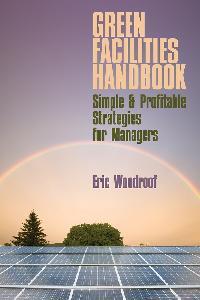
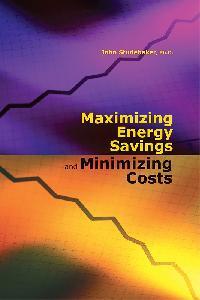
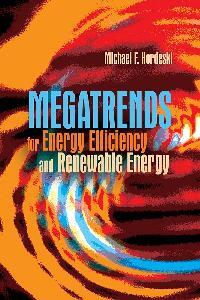
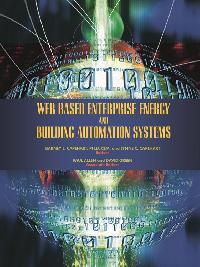
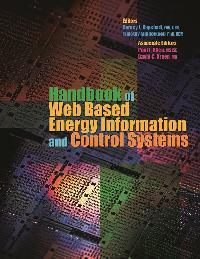
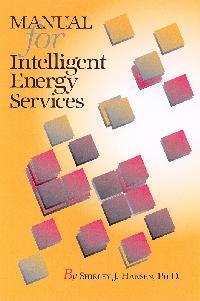
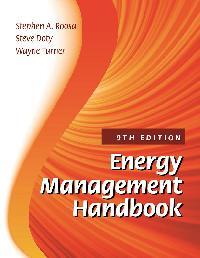
Public Training Program Participant Transfer & Cancellation Policy
The following terms and conditions apply to Participants who register for training programs with the Association of Energy Engineers, Inc. (AEE). All requests for transfers, substitutions, or cancellations must be submitted via email to the Training Department at training@aeecenter.org; by registering for a course, you agree to these terms and conditions.
Transfer Policy
In-Person OR Virtual OR Online
- Registration fees can be transferred to another public course offering, or
- Registration can be substituted with another person who is interested in taking the course. AEE will not refund fee differences; registrants will be responsible for making up any cost differences.
- Transfer options expire one year from the original registration order date.
- Requests for transfer must be submitted via email to the Training Department at training@aeecenter.org 14 days before the course’s start date.
- There is a $200 transfer fee.
On-Demand
- Registrants who enroll in on-demand courses are not eligible to transfer out of the on-demand course and into another.
Cancellation Policy
In Person OR Virtual OR Online
- Registrants who cancel 21 days or more before the start date are eligible for a refund minus a $200 cancellation fee.
- Registrants who cancel 20 days or less before the start date, or who are no-shows are ineligible for a refund.
On-Demand
- Registrants who enroll in on-demand courses are ineligible to receive a refund or cancel their registration.
If there are changes to a training program that are outside of AEE’s control (including, but not limited to, instructor illness, acts of terrorism, acts of God, war, civil disturbances, declaration of national emergency, accidents or labor disputes, fire, flood, storms etc.), participants will be notified as soon as possible, and AEE’s liability will be limited to the reimbursement of the training program registration fee.
Updated November 13, 2023

